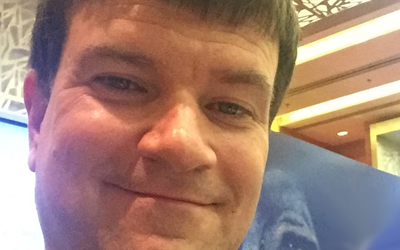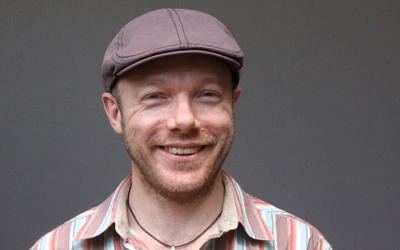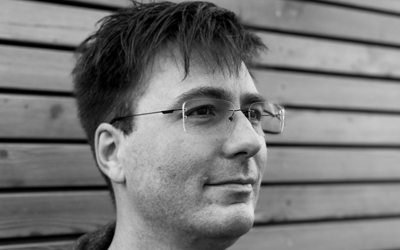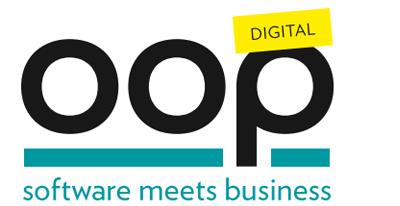- Deutsch
- Contact
- Newsletter

KEYNOTES

Critically important: Open approaches for programming heterogeneous computing.
James Reinders (Intel)
The future of computing is heterogeneous, and therefore the future of programming involves programming heterogeneous systems. Heterogeneous systems (those with accelerators) are sufficiently mature now to cause a swelling in demand for open, multivendor, multiarchitecture tools to replace the need for proprietary closed solutions. “Dedicated or semi-dedicated hardware accelerators” are a must-have feature for computing. An excellent introduction to this topic is “A New Golden Age for Computer Architecture” by Hennessy & Patterson.
Fortunately, solutions are emerging – and James specifically discusses the motivations and future of SYCL and oneAPI as they vie to be important open solutions, multivendor, multiarchitecture solutions for programmers seeking to use heterogeneous machines.
James Reinders is an engineer at Intel, an is an author/co-author/editor of ten technical books related to parallel programming; his latest book is about SYCL (free download: www.apress.com/book/9781484255735). His parallel computing experience spans four decades, and he is currently focused on helping enable parallel programming in a heterogeneous world.

Side-Effects Are The Complexity Iceberg
Kris Jenkins (Confluent)
Many of us have a rough idea of what side-effects are and a vague sense that they're bad. It's a shame we're not more precise about it, because when you really understand side-effects you have an excellent new lens through which you can judge individual blocks of code, larger architectural patterns, and even whole system designs.
So let's start by clarifying our understanding of what side-effects are and how to spot them. We'll see how easily they arise, leaving code that's harder to understand, harder to test and harder to decouple. Then we'll look at tools and techniques for eliminating those side-effects where it's possible and managing them where it isn't.
Finally we'll zoom out to see how those ideas get expressed in every field of computing, yielding fundamentally different approaches to programming language design, DevOps, system architecture, and database design. There's an iceberg of complexity hiding in your systems' side-effects and by the end of this talk you'll be able to spot it and start tackling it, rethinking the way we deal with data and the systems around it."
Kris Jenkins is a Developer Advocate for Confluent, a veteran startup contractor, and former CTO & Co-Founder of a gold trading business. He started his career working for a finance company whose success depended on having a better data model than all their competitors, and the search for better architecture has been with him ever since.

Innovation in the Wild
Gabrielle Benefield & Riccardo Mariti (Mobiusloop.com & CEO of "Riccardo's" Restaurant)
Everyone wants to innovate, the question is how do you change your environment to support innovation?
Gabrielle will introduce the innovation imperative; why innovation is a necessity, a look at the disruptors threatening the fundamental ways we do business, and how to create a sustainable innovation strategy.
We then go to the mean streets of Chelsea, London and meet Riccardo Mariti of Riccardo's restaurant. Riccardo will show you need to disrupt your business before you get disrupted and the importance of building continuous innovation into everything you do. Expect many stories and an interactive Q&A.
Gabrielle Benefield founder of Mobius (Mobiusloop.com) is an advocate for purposeful innovation helping enterprises create innovation ecosystems to adapt to complexity and a rapidly changing future. Gabrielle adopted Agile and Lean thinking in the 90’s dotcom boom in Silicon Valley to successfully lead teams, including taking a scale-up reaching exponential 10x growth in a year and a robust Initial Public Offering, then spearheading one of the largest Agile enterprise transformations - scaling up to 250+ teams across three continents.
Riccardo Mariti is the Founder & CEO of Riccardo's Restaurant in London. He opened Riccardo's in 1995 and beginning in 2016 transitioned it to the ‘world's first scrum restaurant’. Using scrum, agile and mobius, Riccardo has pivoted his business model to measurably decrease staff overheads, decrease team member turnover while boosting team morale, customer satisfaction and profits.

CUPID - For Joyful Coding
Daniel Terhorst-North (Dan North & Associates)
Some codebases are nicer to work with than others. This is true for applications, services, libraries, frameworks, even programming languages themselves. Is this a purely personal choice or are there universal characteristics of software that can make code a joy to work with? Daniel has been thinking about this for a long time, especially since he poked a stick at the SOLID principles for fun a few years ago and people came after him with pitchforks.
Daniel Terhorst-North uses his deep technical and operational knowledge to help business and technology leaders to optimise digital product organisations. He puts people first and finds simple, pragmatic solutions to business and technical problems, often using lean and agile techniques. With thirty years of experience in IT, Daniel is a frequent speaker at technology and business conferences worldwide. The originator of Behaviour-Driven Development (BDD) and Deliberate Discovery, Daniel has published feature articles in numerous software and business publications, and contributed to The RSpec Book: Behaviour Driven Development with RSpec, Cucumber, and Friends and 97 Things Every Programmer Should Know: Collective Wisdom from the Experts. He occasionally blogs at dannorth.net/blog.

Who Will Lead in the Algorithmic Age?
Nakeema Stefflbauer (@FrauenLoop)
For most people, AI means robots taking human jobs or China’s surveillance of its citizens. Despite the hype around it and its image of progress, the real workings of artificial intelligence are not widely understood. Companies are already implementing a web of algorithms to optimize manual business processes. Most of the time, the larger IT organization is not included on the journey. This talk is an overview of how IT leaders can center the development of human teams in a world that is increasingly optimized by algorithms.
Dr. Nakeema Stefflbauer is a tech digitalisation expert with over 20 years in digital transformation delivery in the United States and Europe. Her expertise in early-stage digital product ideation and development is paired with a focus on impact technologies that incorporate algorithmic equity and fairness. As founder and CEO of the FrauenLoop computer programming organization in Berlin, Dr. Stefflbauer advises and invests in startup founders building ethical, scalable tech solutions.
The following two keynotes will be held in German:

Umweltverträglichkeit von Software und von Cloud-Dienstleistungen auf dem Prüfstand
Marina Köhn (Umweltbundesamt)
Bisher gilt die gesetzliche Mindesteffizienz nur für Hardware. Aber auch die Software hat Einfluss auf die Begrenzung der Nutzungsdauer oder den gestiegenen Energieverbrauch. Es ist Zeit, dass Anforderungen an die Effizienz der Verarbeitung, Speicherung & Übertragung der Daten auch für Software gestellt werden. Wie kann man die Umweltverträglichkeit von Software erkennen & messen? Welche Umweltlasten entstehen durch Cloud-Dienstleistungen (s. z.B. Video-Konferenzen oder Streaming)? Der Vortrag wird unter anderem diese Fragen beantworten
Marina Köhn ist Informatikerin und seit 1992 im Umweltbundesamt wissenschaftlich tätig. Ihre Arbeitsschwerpunkte bilden umweltbezogene Systemvergleiche, insbesondere im Aktionsfeld Informations- und Kommunikationstechnik (IKT). Aus dieser Arbeit heraus sind Forschungsprojekte entstanden, die die Potenziale der Ressourceninanspruchnahmen in der IKT ermitteln und Handlungsalternativen zu ihrer Aktivierung entwerfen. Mit den Fragen rund um das Thema Green-IT beschäftigt Sie sich seit über 20 Jahren. Im Rahmen dieser Tätigkeit sind die Blauen Engel für die Produktgruppen Rechenzentren, Server und Speicher und Software entstanden und neue Berechnungsmethoden, mit der die Energie- und Ressourceneffizienz von Rechenzentren, Cloud-Diensten und Software gemessen werden kann. Darüber hinaus steht Sie für die Green-IT-Initiative des Bundes und deren zentrale Geschäftsstelle aktiv zur Verfügung und berät bei der Umsetzung von Maßnahmen.

Don't Look Down: Wie wir #Open Source wirklich entwickeln
Christian Grobmeier
Wenn eine weltweite Sicherheitslücke das Internet kaputt macht, dann kann man sich schon die Frage stellen: ist es wirklich so schlimm? Repariert das nächste Release das Problem tatsächlich? Oder handelt es sich eine weltweite Verschwörung der Open Source Entwickler? Ein kurzer Einblick in die Welt der Apache Software Foundation, in die bisher belanglose Welt der Logging-Frameworks und das schreckliche Leben der (fast) unbezahlten Open Source Entwickler.
Christian Grobmeier ist selbstständiger Trainer und Software Entwickler. Außerdem ist er seit knapp 13 Jahren unbezahlter Mitarbeiter der Apache Software Foundation. Dort ist derzeit VP Data Privacy, er hat aber auch im mittlerweile recht bekannten Log4j Projekt mitgewirkt. Sie erreichen Ihn auf Twitter unter @grobmeier oder über seine Internetseite grobmeier.solutions
